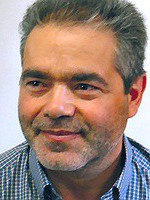abstract
Bioactive glasses are currently considered the suitable candidates to stir the quest for a new generation of osseous implants with superior biological/functional performance. In congruence with this vision, this contribution aims to introduce a reliable technological recipe for coating fairly complex 3D-shaped implants (e.g. dental screws) with uniform and mechanical resistant bioactive glass films by the radio-frequency magnetron sputtering method. The mechanical reliability of the bioactive glass films applied to real Ti dental implant fixtures has been evaluated by a procedure comprised of "cold" implantation in pig mandibular bone from a dead animal, followed by immediate tension-free extraction tests. The effects of the complex mechanical strains occurring during implantation were analysed by scanning electron microscopy coupled with electron dispersive spectroscopy. Extensive biocompatibility assays (MTS, immunofluorescence, Western blot) revealed that the bioactive glass films stimulated strong cellular adhesion and proliferation of human dental pulp stem cells, without promoting their differentiation. The ability of the implant coatings to conserve a healthy stem cell pool is promising to further endorse the fabrication of new osseointegration implant designs with extended lifetime. (C) 2015 Elsevier Ltd. All rights reserved.
keywords
BIOACTIVE GLASS COATINGS; 45S5 BIOGLASS(R)-BASED SCAFFOLDS; THIN-FILMS; HEAT-TREATMENT; BONE; HYDROXYAPATITE; SURFACE; SYSTEM; OSSEOINTEGRATION; ADHESION
subject category
Engineering; Materials Science
authors
Popa, AC; Stan, GE; Enculescu, M; Tanase, C; Tulyaganov, DU; Ferreira, JMF
our authors
acknowledgements
A.C.P. and G.E.S. are thankful for the financial support of the Romanian National Authority for Scientific Research through the UEFISCDI PN-II-RU-TE-2011-3-0164 (TE49) grant. This work was also supported by the European Regional Development Fund (FEDER) through the COMPETE, by the Portuguese Government through the Portuguese Foundation for Science and Technology (FCT), in the scope of the projects UID/CTM/50011/2013 (Aveiro Institute of Materials, CICECO, www.ciceco.ua.pt).


